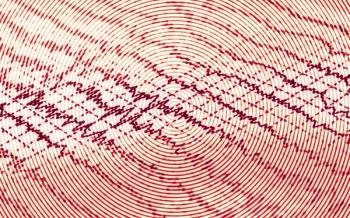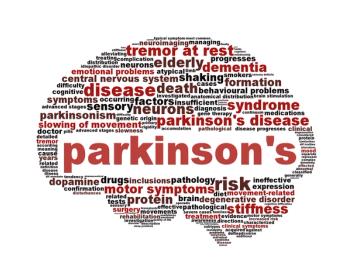
Psychiatric comorbidity in epilepsy represents not only a matter of intellectual interest but also an important variable that affects prognosis in terms of morbidity and mortality.

Psychiatric comorbidity in epilepsy represents not only a matter of intellectual interest but also an important variable that affects prognosis in terms of morbidity and mortality.

For some patients with Parkinson disease, the neuropsychiatric complications are a greater source of morbidity than the motor dysfunction. This article focuses on the management of psychosis in Parkinson disease.

As with most tests in medicine, the results of computerized neurocognitive tests are not diagnostic, but they are useful adjuncts to the diagnostic process.

Many psychotherapies attempt to enhance patients’ problem-solving capacities, interpretation of images, and regulation of affective states. What areas in the brain play a role in these functions?

The tripling of ADHD rates in the last 20 years and skyrocketing use of stimulants are sure signs of a fad. The forces promoting it are, and will continue to be, formidable. More in this commentary.

The frayed dignity of the patient described in this poem, his intelligence matched by the inexplicable intransigence of his alcoholism, moved this VA psychiatrist to describe the clinical encounter, apropos for April, Alcohol Awareness Month.

Those who have experienced extreme trauma and their descendents have taught us much about resilience, renewal, and redemption-outcomes that are all recalled in this period of the Jewish Passover, Christian Easter, and Holocaust Memorial Week.

Vitamin D has been hailed as the “sunshine” vitamin with many therapeutic attributes. The authors explore the association between vitamin D deficiency and increased risk of depression.

In just 20 years, rates of ADHD have tripled and autism and childhood bipolar disorder have increased forty fold. The last thing our kids need is to be misdiagnosed with “Sluggish Cognitive Tempo” and bathed in even more stimulant meds. More in this opinion piece.

Dysexecutive syndromes result from damage to the anterior regions of the brain and present as a combination of disinhibition, disorganization, or apathy.

Since the terms “genius” and “creativity” have different definitions, Psychiatric Times asked a neuropsychologist and creativity expert to clarify how the terms are being used in scientific studies.

When Wordsworth rhapsodized about yellow flowers, it is doubtful that he expected his verse to translate into the mental health realm. Yet that is exactly what happened.

Placing black floor mats in front of exits to deter demented nursing home residents from dangerous wandering may pose ethical questions.

Global child mental health in low- and middle-income countries faces all of the challenges of Western society and many more. This article examines the issues.

Firearms are the means of death in thousands of suicides and homicides every year. There is no denying that free access and wide availability has made gun death a major threat to our public health. More in this commentary.

I’d love to create a new set every year, our glossy portraits on one side, caduceus in the corner, honors, cure rates, and publications on the back...

What's new in sleep medicine? The latest developments in both new and novel approaches to treating sleep disorders.

It is time for psychiatry’s critics to drop the conspiratorial narrative of the “chemical imbalance” and acknowledge psychiatry’s efforts at integrating biological and psychosocial insights.

Depression is a frequent psychiatric comorbidity among patients with restless leg syndrome. The case presented here illustrates the importance of evaluating for RLS symptoms in patients with major depressive disorder who complain of insomnia.

Ranked by the World Health Organization among the top 10 most disabling disorders in the world, bipolar disorder was the subject of review in a recent study. Here, a video summary by the lead author of a study on bipolar disorder and aggression.

Mental health professionals can predict high-risk groups but can’t pick out who will go on a rampage. Murder is too much of a-needle in-the-haystack rare event to ever be reliably prevented with psychiatric tools. More in this commentary.

What is your first impression of this ink blot?

ADHD has more than tripled in just 20 years-it is now diagnosed in 11% of all kids and in an astounding 20% of teenage boys. More in this commentary.

Helping to shed light on the often misunderstood topic of aggression and how it may or may not manifest in adults with bipolar disorder, Dr Javier Ballester summarizes the most important findings, based on his research.

In periodic entries in his journal, the Columbia Mall shooter acknowledged having a “general hatred toward others.” He had insight into his deteriorating condition, as he felt himself slipping away from rationality and health.

This article focuses on 2 ethical issues that the new CPT coding raises to higher stakes: the increased potential for conflict of interest in billing and the erosion of confidentiality.

In the process of both psychotherapy and sculpture, this psychiatrist discovered there is potential for an exciting and rewarding life. Here, a representative piece from his collection.

Many barriers can prevent physicians who have a substance use disorder from obtaining the help they need. However, in many states, all is not lost for physicians who willingly participate in treatment. Here, signs, symptoms, and intervention steps.

How does psychiatry in Spain differ from the US? More in this video vignette.

When a full-time writer's husband was diagnosed with cancer, she found writing poetry helped her cope. She guessed that others would, like her, find their experiences with cancer best expressed through poetry. So began The Cancer Poetry Project.